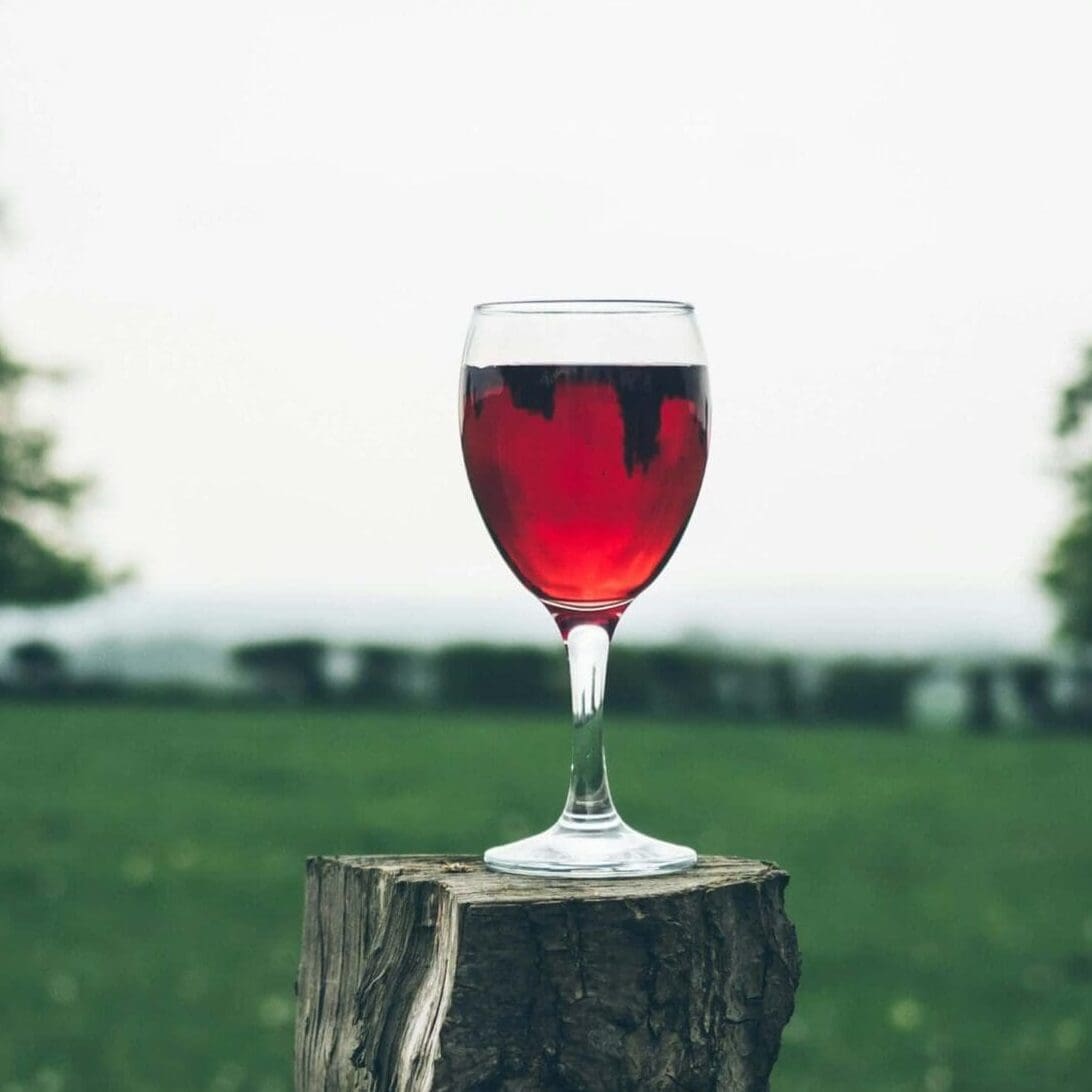
Hello Friends! 8 Ways to Reduce Cancer Risk Part 1 covered the first four behaviors used to reduce cancer risk: eating more fruits and vegetables, reducing or eliminating alcohol, finding more ways to get moving, and eliminating tobacco/nicotine products. This post will be covering the other 4 behaviors to reduce risk and LIVE YOUR BEST LIFE!
5. Consume highly processed foods in moderation
First of all: ALL FOODS FIT.
Food does not have moral value and there is no use in categorizing foods into “good” and “bad”. Cookies are not bad, and you are not bad for eating one.
Objectively speaking, fast food, frozen meals, sodas, and certain snack foods such as chips, candy, and cookies tend to be high in calories, sodium, added sugar, and/or saturated fats. These foods typically also lack satiating-fiber, making it easier to consume an excess of calories. This can be an issue since regularly consuming more calories than one’s body needs can lead to unwanted weight gain and an increased risk for 13 different cancers.
Don’t panic! This does not mean you can never eat these foods again! These are fine to enjoy as part of an overall balanced diet. There is an issue, however, when these foods are consumed in excess and take the place of nutrient dense options such as fruits, vegetables, nuts/seeds, beans, whole grains, lean protein, and low-fat dairy.
What to do at home:
- Try swapping your sugary soda with lower sugar beverages such as flavored water, tea, or diet soda.
- Enjoy candy and cookies as part of a balanced snack or meal. This will help you avoid crashing shortly afterwards.
- While munching on some chips for an afternoon snack, try a high protein dip, and add some crunchy vegetables like carrots, celery sticks, and cucumber spears. Get creative!
- Look for lower sodium options when buying frozen meals or try your hand at meal-prepping and freezing your home-cooked meals ahead of time for later use.
- Have quick, nutritious go-tos for meals so that you are less tempted to use the drive through when you are in a time-crunch.
- Balance out your cheap ramen dinner with some microwave steamed veggies and an over-easy or soft-boiled egg for some quick protein.
When eating out:

- Do not starve yourself to “save room” for a dinner out. This can cause you to become ravenous, making it easier to eat past fullness when dinner time rolls around.
- Try opting for a fruit or vegetable as a side. Seasonal roasted vegetables are a delicious side offered by most sit-down restaurants.
- If possible, ask for your meal or side to be prepared with less salt, especially if you have a personal or family history of high blood pressure.
- Take your time. Enjoy the company. Share stories. Put your fork/knife down between bites. Take sips of your water. Remember, it takes your body roughly 20-30 minutes to feel full.
- Tune in to hunger/fullness cues. You are getting full when: the food stops tasting as good, you are losing interest in the food, you are feeling a full-but not uncomfortable- sensation in your stomach. Listen to your body and when you start getting signs you are full, ask for a box and enjoy the meal again at another time. Go easy on yourself if you do eat past fullness. Make a note of the sensation and remember that it happens to everyone at some point. Do not punish yourself!
- Be mindful of endless chip/bread baskets. These starchy appetizers are easy to munch on while waiting. Since we sometimes do not register these as part of the meal, we may keep eating when our food arrives and blow past fullness cues, causing us to feel uncomfortably full. Pace yourself and start with one piece of bread or a small handful of chips. You can always take the rest back home with you!
6. Remove processed meats and limit red meat
Processed meats include meats that have been prepared through curing, drying, smoking, fermenting, salting, and/or adding a chemical preservative. They are not recommended for cancer prevention.
Examples of processed meats:
- Bacon
- Corned beef
- Spam
- Ham
- Sausage
- Hot dogs
- Pepperoni
- Salami
- Beef jerky
- Deli meats & cold cuts (even chicken and turkey)
- Pancetta
Unfortunately, even small intakes of processed meats such as one hot dog or 2 slices of deli meat per day can increase colon cancer risk by 16%.
One theory about why processed meats increase cancer risk is related to preservatives called nitrates. Now these are naturally found in certain plants, and in this form, they do not pose a health risk. The nitrates used in processed meats, however, can be broken down into harmful N-nitroso compounds which have been linked to insulin resistance, heart disease, and cancer. Even nitrate free processed meats tend to be high in sodium, which in excessive amounts, is linked to stomach cancer.
Techniques to Limit Processed Meats
- Swap out your ham sandwich for chicken/tuna/or chickpea-salad sandwich.
- Try boiled eggs, corn and beans, edamame, or baked chicken as your protein for salads.
- Instead of bacon with breakfast, try other forms of protein. Have a yogurt parfait. Try an egg on toast with some avocado. Make a southwest omelet filled with beans and some reduced fat cheese. Blend a smoothie with some milk, fruit, and peanut butter for a higher protein drink. Need even more protein due to a high activity level or cancer treatment? Add a scoop of protein powder to smoothies, oatmeal, and baked goods.
- Fill your charcuterie board with fancy cheeses of your choosing, nuts, fruits, veggies, dips, and chocolate covered almonds.
- Swap your pizza toppings from pepperoni to chicken or veggies. Make your own mini pizzas using flatbread and get creative with different sauces, spices, and flavor profiles.
Although processed meats should be limited or avoided for prevention, they may be useful during treatment to prevent malnutrition and help individuals meet their protein needs, especially if it is one of the only foods someone is willing to eat.
Red Meat
Red meat contains plenty of nutrients such as protein, iron, and zinc. It is fine to consume in moderation and can actually be a very good source of iron for those who struggle with anemia. Excessive consumption of red meat, however, (greater than 18 oz per week) is linked with an increased risk of colon cancer. For reference, a 3 oz piece of meat is roughly the size of a deck of cards. It can be easy to go overboard on the meat, especially if you consume large portions. Fortunately, there are methods to reduce your red meat consumption, such as varying your protein source throughout the week and making sure most of your plate is filled with plants (fruits, vegetables, legumes, whole grains). You can also try meatless meals or a meatless day, using beans, lentils, tofu, nuts, or dairy as your protein.
7. Do NOT take high dose supplements to reduce cancer risk
Supplements are not regulated by the FDA because they are not considered to be a food nor a drug. It is also easier to get too much of a nutrient from supplements rather than food, especially in the gummy form which tastes like candy and is easy to eat.
Although certain individuals and conditions may warrant supplementation, such as those with a documented deficiency, elderly individuals, and pregnant women, it is best to get our nutrients from food first. When we take the isolated form of a nutrient (supplement form), we are missing out on all the compounds present in the food source that can offer additional benefits such as fiber and phytonutrients. Taking a vitamin C tablet is not the same as eating an orange!
You might think, “Food has nutrients that are good for me, so why don’t I take some supplements to make sure I am getting what I need. After all, if I take in too much, my body will just pee it out and no damage is done.” This is false! Your liver still has to process everything, and excessive supplementation can be toxic to your organs, especially if you are already getting plenty of that/those nutrient(s) from your diet alone. In fact, supplementing high doses of Vitamin E has been shown to increase prostate & lung cancer risk.
While every individual is different, overall research shows that supplements do not offer cancer protection or provide benefits to survivors worried about recurrence.
If you decide to take a multivitamin anyway . . .
- Discuss with your doctor and dietitian first.
- Look for a reliable brand that is tested by a third party.
- Make sure it does not exceed 200% of the daily value for the vitamins or minerals that it contains.
- If you are receiving cancer treatment, make sure you go over the supplements you want to take with your oncologist first, to make sure there are no drug interactions.
8. Protect your skin from UV rays!
According to the AICR, skin cancer is the most common form of cancer in the US. Remember to wear your sunscreen (SPF of at least 15 or more) and reapply every 2 hours. Make sure you really lather it on and ask for help to cover those hard-to-reach places. Don’t forget the underside of your nose and chin, since these areas can be exposed to sun rays that are reflecting from other surfaces. If you are splashing in the pool or sweating a lot, look for a waterproof sunscreen (you still need to reapply).
Even in the winter months, when the sun may not feel as hot, you are still being exposed to UV rays! Wearing sunscreen in the wintertime can help you protect your skin. Think of applying sunscreen as brushing your teeth; it’s an everyday thing!
Try to avoid being outside during the hottest hours of the day – usually between 10 and 2. Avoid tanning in the sun and using tanning beds since this increases your UV exposure and can cause damage. Tans may be trendy, but they are signs of your body responding to UV damage!
Choose clothing that covers your skin, especially if you’re going to be in the sun for an extended period of time. Look for labels when buying outdoor clothing that say “sun protection” or “ultraviolet protection factor” (UPF). Wear wide brimmed hats, and sunglasses to protect your head, face, and eyes. Using multiple methods of protection (clothes and sunscreen) will help you even further reduce risk of sun damage.
There is a myth that tan people or those with darker complexions do not need to wear sunscreen. This is false! Remember that everyone needs to wear sunscreen to protect their skin from premature aging and sun damage.
“But what about Vitamin D”
To get enough vitamin D, most people only need to be in the sun for about 15 minutes twice a week. You can also get vitamin D from food sources such as fortified milk and orange juice, fatty fish, egg yolks, and mushrooms. If you have low blood levels, your doctor will typically recommend a vitamin D supplement. PLEASE, PLEASE do not lay out for hours or go to a tanning bed to get your vitamin D. There are better ways.
Closing
Remember, several of these habits do so much more than simply reduce cancer risk. They also help to prevent development and progression of all kinds of chronic diseases, such as diabetes, heart disease, and high blood pressure. It is likely that your loved ones would benefit from working on these behaviors as well. Make it a family affair to work on being healthier and find ways to make it fun! We are more willing to stick to things that we enjoy, so look forward to changing your lifestyle habits so that you can live your best life yet!
If you are currently not following these recommendations, do not be hard on yourself. Pick one behavior to work on and gradually increase how many of these you are trying to reduce cancer risk!
Head on over to Instagram and send me a DM if this blog post resonated with you! I would love to know how you are planning on incorporating these recommendations into your everyday life!
Click here to join the private practice membership, Cancer Simplified! This monthly membership is for those who are done trying to use Dr. Google for nutrition advice and just want the SIMPLE facts. Join for exclusive content and finally begin to get your life back and feel more like you – get back more time to enjoy your life and less worrying about cancer recurrence.
References
- Wcrf-Admin. (2022, April 28). Limit Red and processed meat. WCRF International. Retrieved July 10, 2022, from https://www.wcrf.org/diet-activity-and-cancer/cancer-prevention-recommendations/limit-red-and-processed-meat/. Updated April, 28, 2022. Accessed January 6, 2023.
- Are dietary supplements safe? American Cancer Society. (n.d.). Retrieved July 10, 2022, from https://www.cancer.org/treatment/treatments-and-side-effects/treatment-types/complementary-and-integrative-medicine/dietary-supplements/safety.html
- Foxtrot. (2022, April 25). Do not use supplements for cancer prevention. American Institute for Cancer Research. Retrieved July 10, 2022, from https://www.aicr.org/cancer-prevention/recommendations/do-not-use-supplements-for-cancer-prevention/
- Wcrf-Admin. (2022, April 28). Do not use supplements for cancer prevention: Cancer prevention. WCRF International. Retrieved July 10, 2022, from https://www.wcrf.org/diet-activity-and-cancer/cancer-prevention-recommendations/do-not-use-supplements-for-cancer-prevention/
- AICR. Sun, cancer and vitamin D: Top 5 myths and facts. American Institute for Cancer Research. https://www.aicr.org/news/sun-cancer-and-vitamin-d-top-5-myths-and-facts/?gclid=CjwKCAiAk–dBhABEiwAchIwkbqt3ZM7cEQeXl9ok4NCpK5vSp4rQB4bBDV_8i0popwt3t1EpuljaRoCko8QAvD_BwE. Published July 6, 2017. Accessed January 9, 2023.
- Why you need sun protection in the Winter. American Academy of Dermatology. https://www.aad.org/public/everyday-care/sun-protection/shade-clothing-sunscreen/cold-weather. Published May 25, 2021. Accessed January 9, 2023.
- AICR. New Study finds AICR/WCRF’s cancer prevention recommendations are associated with reduced mortality risk from all causes, cancer and heart disease. American Institute for Cancer Research. https://www.aicr.org/news/new-study-finds-aicr-wcrfs-cancer-prevention-recommendations-are-associated-with-reduced-mortality-risk-from-all-causes-cancer-and-heart-disease/. Published July 6, 2022. Accessed January 9, 2023.
This blog is not intended as medical nutrition therapy, medical advice, or diagnosis and should in no way replace consultation or recommendations from your medical professional.




